Parliamentary elections in Greece, May-June 2023

Anna Kyriazi
Postdoctoral Researcher in the Department of Social and Political Sciences at the University of MilanIssue
Issue #4Auteurs
Anna Kyriazi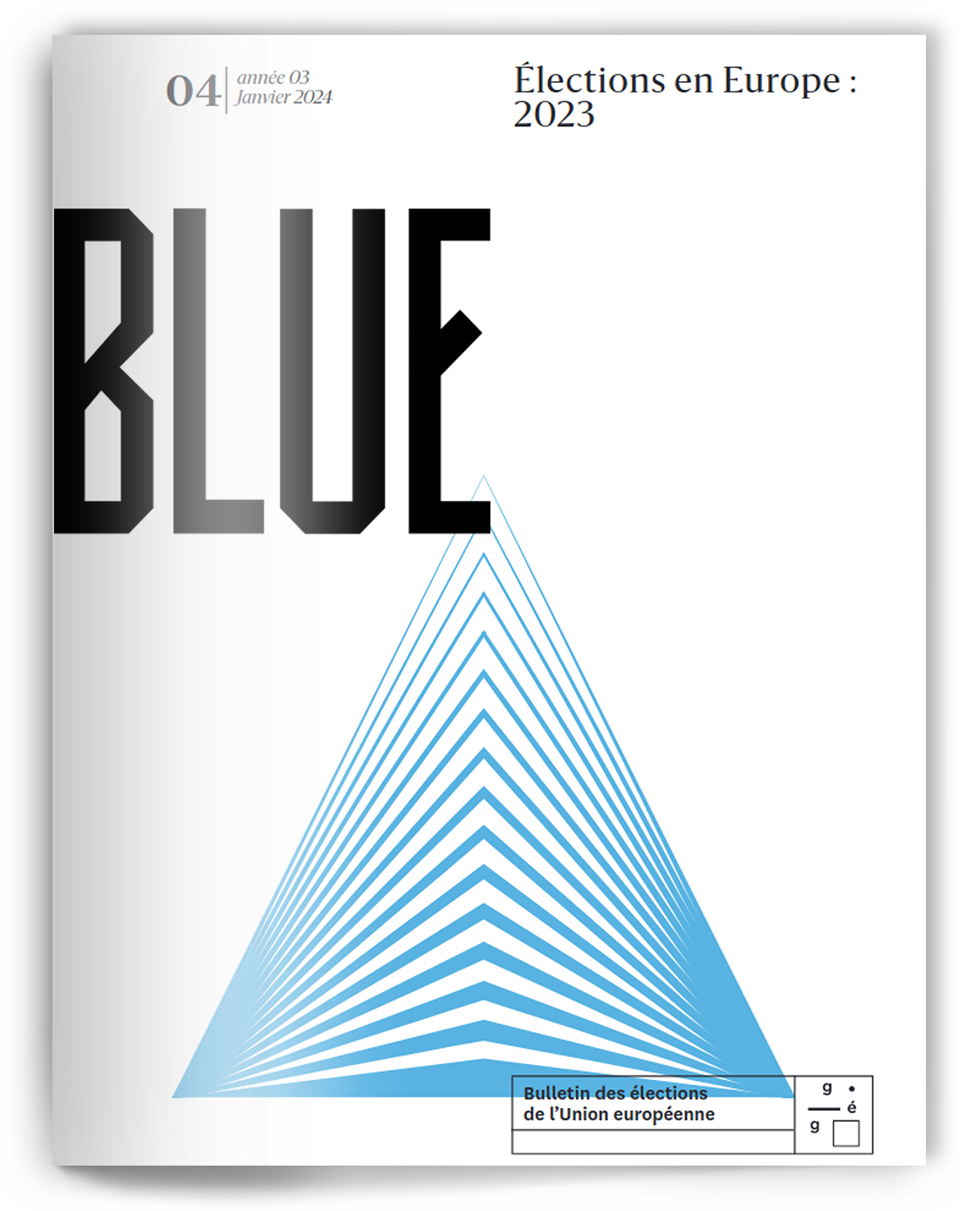
Issue 4, January 2024
Elections in Europe: 2023
Introduction
In 2023 Greece had two legislative elections in close succession, on 21 May and 25 June. The May 21 elections were the first (and only) to be held according to the electoral law modified back in 2016 by the SYRIZA-ANEL coalition government, replacing the previous bonus system with a purely proportional one. Unless changes to electoral law are endorsed by a parliamentary supermajority, they do not apply to the next election – therefore, the subsequent general election that took place in 2019 was held under the previous system. A traditional proponent and beneficiary of majority bonuses, the New Democracy government that came to power in those elections changed again the electoral law in January 2020, reinstating the bonus system, though with a different formula. As New Democracy could not secure a supermajority either for passing the new rules, their application was similarly delayed by one election (held only a month after May 2023, in June).
In May 2023 the incumbent center right party, New Democracy, led by prime minister Kyriakos Mitsotakis achieved a large victory, while the biggest opposition party, SYRIZA, headed by Alexis Tsipras, performed much worse than expected. Still, no party gained an outright majority, and the formation of a coalition government was eschewed. Mitsotakis called for a second election, knowing that this time a majority bonus system would apply (Politico 2023). Indeed, as was largely anticipated, New Democracy secured an outright majority in the June elections. This article discusses the campaigns leading up to the elections and the results in light of the broader transformations of the Greek party system since 2010.
Background
Contemporary electoral developments in Greece cannot be understood without reference to the protracted, deep economic crisis the country experienced roughly between 2010-2018. In particular, two elections held in 2012 upset what had been beforehand an exceptionally stable party system organized around two poles, the socialist Panhellenic Socialist Movement-Πανελλήνιο Σοσιαλιστικό Κίνημα (PASOK) and the conservative New Democracy-Νέα Δημοκρατία (Moschonas 2013). Polarization and fragmentation rose, but a new equilibrium in the form of a weakened bipartisanship was found soon (Altiparmakis 2019). The key change of this critical period was the ascent of the radical left Coalition of the Radical Left-Συνασπισμός της Ριζοσπαστικής Αριστεράς (SYRIZA), which replaced PASOK as the main party on the left, and which governed the country between 2015-2019 (in a “paradoxical” coalition with the smaller right-wing populist Independent Greeks-Ανεξάρτητοι Έλληνες (ANEL) party (Tsirbas 2024, 3)). Another major development of the crisis era was the rise of the neo-fascist Golden Dawn-Χρυσή Αυγή (GD), which took up an anti-system, anti-immigrant agenda (Ellinas 2013).
The 2019 general elections seemed to be a further step towards the return to a (weakened) bi-partism (Kyriazi 2019; Tsirbas 2024), as the simplification and concentration of the party system continued. New Democracy won with 40% of the vote and SYRIZA came in second at 32%. Another four parties managed to enter the Parliament: Movement for Change-Κίνημα Αλλαγής (KINAL), an alliance of center left parties including PASOK, the Greek Communist Party-Κομμουνιστικό Κόμμα Ελλάδας (KKE), the radical right Greek Solution-Ελληνική Λύση (GS) and the radical left MeRA25-ΜέΡΑ25, while GD failed to do so.
As we shall see, the 2023 elections reversed the trend of re-concentration as several small parties on both the left and right managed to enter parliament. Moreover, there has been a further shift away from a bipolar system towards one-party dominance as New Democracy’s popularity surged, while SYRIZA crumbled.
The 21 May elections
New Democracy’s 2019-2023 term was marked by several momentous events: the outbreak and management of the Covid-19 pandemic, Russia’s invasion of Ukraine, and an energy and cost of living crisis, including soaring inflation. In the Summer of 2022, it was revealed that the National Intelligence Service had been monitoring the mobile phones of journalists, high-ranking army officers and politicians. Despite the widespread furor, New Democracy came out unscathed from the scandal. In early 2023, 57 people were killed in a train accident, which profoundly shocked Greek society, revealing long-standing safety deficiencies in the country’s railway system. Strikes and mass demonstrations followed. The governing party’s popularity declined in the polls, only to gradually recover from April 2023 onwards (Politico 2023).
Though the prospect of snap elections had been floated beforehand, it was on 28 March 2023 when Kyriakos Mitsotakis finally called for general elections and set the date for 21 May. The official justification for going to the ballot before the end of the term was the need for political stability to achieve investment grade rating (News 24/7 2023).
The electoral campaign 1
New Democracy focused on economic issues, promising measures to stimulate investment, lower unemployment, and implement tax cuts. The party’s electoral manifesto stressed four points in particular: better wages, an effective state, decent public health and more rights for the new generation (by which they meant affordable housing), and improved national security (New Democracy 2023). Mitsotakis cast himself as a modern, “European” leader while New Democracy’s record as the government of economic and political stability that had led the country out of the bailouts was emphasized. It is worth noting, too, that Mitsotakis represents the liberal strand of New Democracy, whose views coexist with a more markedly nationalist current. This influence is perhaps most evident in the party’s quite hardline stance on immigration (Kyriazi 2019; Politico 2023), reflected in electoral promises to further reinforce Greece’s land border with Turkey as well as to enhance internal controls to stem irregular migration.
SYRIZA’s campaign focused on restoring social justice and regenerating democratic politics. Among others, it proposed measures to tackle the cost-of-living crisis and the housing crisis facing Greece (SYRIZA 2023). It argued for the need to reinforce the welfare state, alleging that it had come under attack by the incumbent government. SYRIZA politicians sought to breach the government’s narrative of competence and accountability, alleging political corruption, placing blame on it for the catastrophic train crash, and emphasizing the wiretapping scandal.
PASOK-KINAL 2 , the formerly dominant party on the left replaced by SYRIZA during the years of the economic crisis, embraced issues of importance primarily to urban and educated voters. The party emphasized the need for a modern and socially just state, endorsing values such as meritocracy, transparency, and respect for human rights. Its proposals included (modest) labour market reform, an overhaul of the healthcare system, investment in education, and facilitating the green transition, among other issues (PASOK-KINAL 2023).
Further to the left, MeRA25 headed by Greece’s former finance minister, Yannis Varoufakis, advanced a radical left, Eurocritical agenda. Among others, the party called for the nationalization of key sectors and an independent foreign policy. The Communist Party of Greece campaigned, as it has done traditionally, on workers’ rights and social issues, advocating also for Greece’s disengagement from the Ukraine war. On the far right, Greek Solution, a pro-Orthodox, Russophile party advanced a welfare chauvinistic, conspiracy theory-tinged agenda.
Apart from the parties already possessing parliamentary representation, a few smaller ones also seemed to have a realistic chance of passing the 3% electoral threshold. Course of Freedom-Πλεύση Ελευθερίας (CoF), a party founded by Zoe Konstantopoulou, a formerly prominent member of SYRIZA, was one of them. The party is generally considered radical left, though on many issues it sits uneasily on the left-right axis and is first and foremost characterized by its profoundly anti-establishment stance and hard Euroscepticism (Kordas 2023). A new party was ascended also on the far right: Niki-Νίκη (Victory) was founded in 2019 as an ultra-conservative, ultra-Orthodox, Russophile party, advocating for the primacy of the church over the state. The extreme right Golden Dawn was designated a criminal organization in October 2020, and neither it nor its immediate successors were allowed to run in 2023.
Results
olls had been showing a consistent lead for the incumbent New Democracy (Politico 2023), but the party outperformed expectations, winning 41% of the total vote (i.e., 146 of the 300 seats in parliament) as opposed to only 20% (71 seats) won by Syriza. PASOK-KINAL came in third with 11.5% of the vote (41 seats), followed by the Communist Party (7% and 26 seats), and Greek Solution (4.5% and 16 seats). Three smaller parties came close but failed to reach the 3% electoral threshold: Course of Freedom, MeRA25, and Victory.
The 25 June elections
Main developments
Despite New Democracy’s decisive victory in May, the party did not reach an outright majority, and it also rejected the option of forming a coalition government. Mitsotakis therefore called for a second election to be held in the following month. The election’s outcome was widely viewed as a foregone conclusion, though the size of the government’s majority was still at stake. There were some changes among the entities that had participated in the May elections, but major contesting parties were the same.
The most noteworthy newcomer at this phase was yet another party on the far right: the Spartans- Σπαρτιάτες, advancing an ultranationalist agenda and extreme anti-immigration positions. The party had not participated in the May 2023 elections, but gathered steam in June, when Ilias Kasidiaris, a prominent leader and former MP of the Golden Dawn, who is currently serving a prison sentence and whose new party was not allowed to run, endorsed the Spartans, urging his supporters to vote for them (Rori and Georgiadou 2023).
Another major event occurred in the middle of the electoral campaign: on 14 June 2023, a boat carrying migrants sank off the coast of the Peloponnese. With over 500 people presumed dead (The Guardian 2023a), the disaster raised questions over the response of the Greek coastguard, leading to accusations that it was frequently repelling asylum-seekers. The incident sparked protests against pushbacks and the fortification of borders that had taken place under Mitsotakis’ first term. But much like the February train crash beforehand, this disaster also failed to make a dent in New Democracy’s strong lead.
Results
As expected, New Democracy won the June 2023 elections achieving an outright majority, while SYRIZA further sank in the polls. Overall, eight parties crossed the 3% threshold as opposed to only five in the May elections. Turnout was 54%, 7% lower than in May and the lowest seen after the 1974 regime change. PASOK-KINAL, the Communist Party and Greek Solution performed very similarly to the previous elections, but there were changes in the minor parties that managed to enter parliament: MeRA25 dropped out, but Course of Freedom made it into the parliament (with 3.2% corresponding to 8 seats). On the far-right, Victory (3.7%, 10 seats) and the Spartans (4.7% and 12 seats) made gains.
The available exit poll data reveal relatively small differences in voting behaviour between different age groups: older voters supported somewhat more Greece’s two traditional parties, New Democracy and PASOK-KINAL; support for SYRIZA, the Communist Party and Greek Solution was uniform across the age groups; the Spartans and Course of Freedom found, instead, comparatively more support among the young (Kathimerini 2023). New Democracy was popular across all occupations, but especially among pensioners and entrepreneurs; the unemployed supported disproportionately the Spartans (Ibid.). Finally, SYRIZA seems to have been more popular among women, and the Spartans and Greek Solution among men (Ibid.).
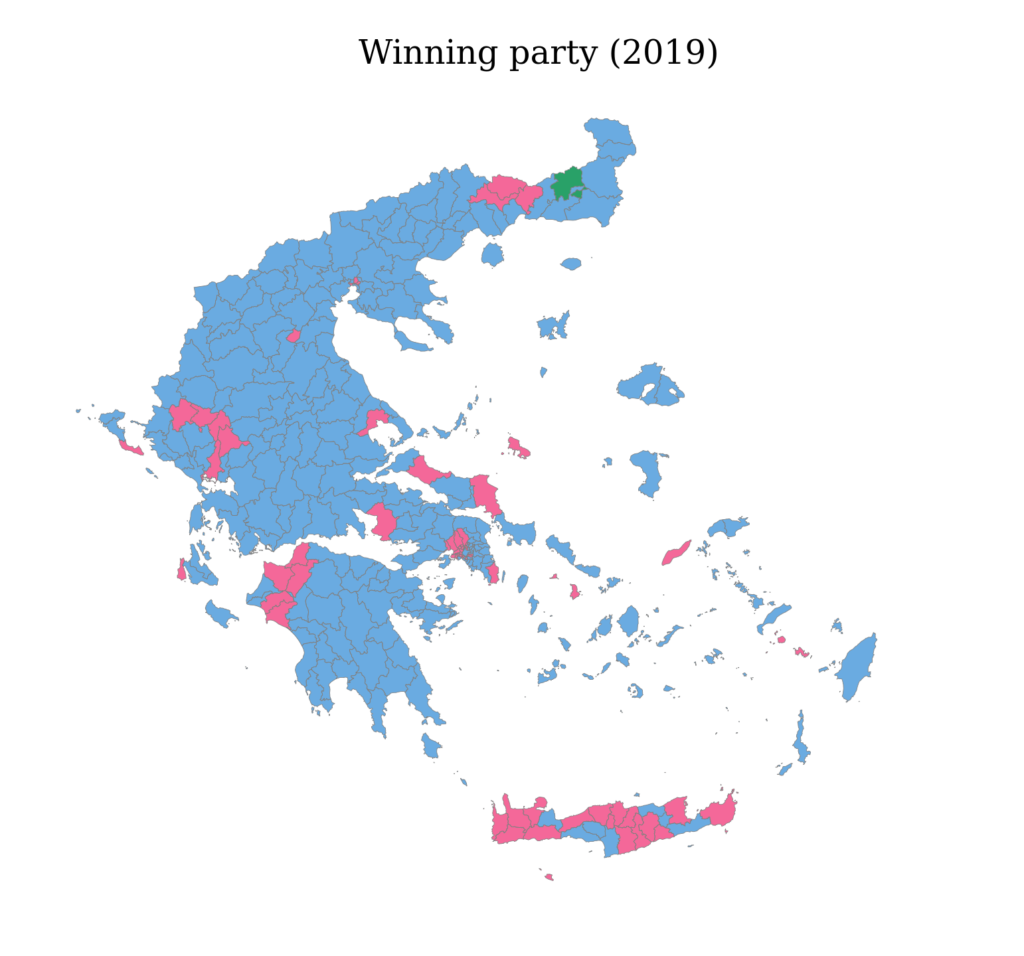
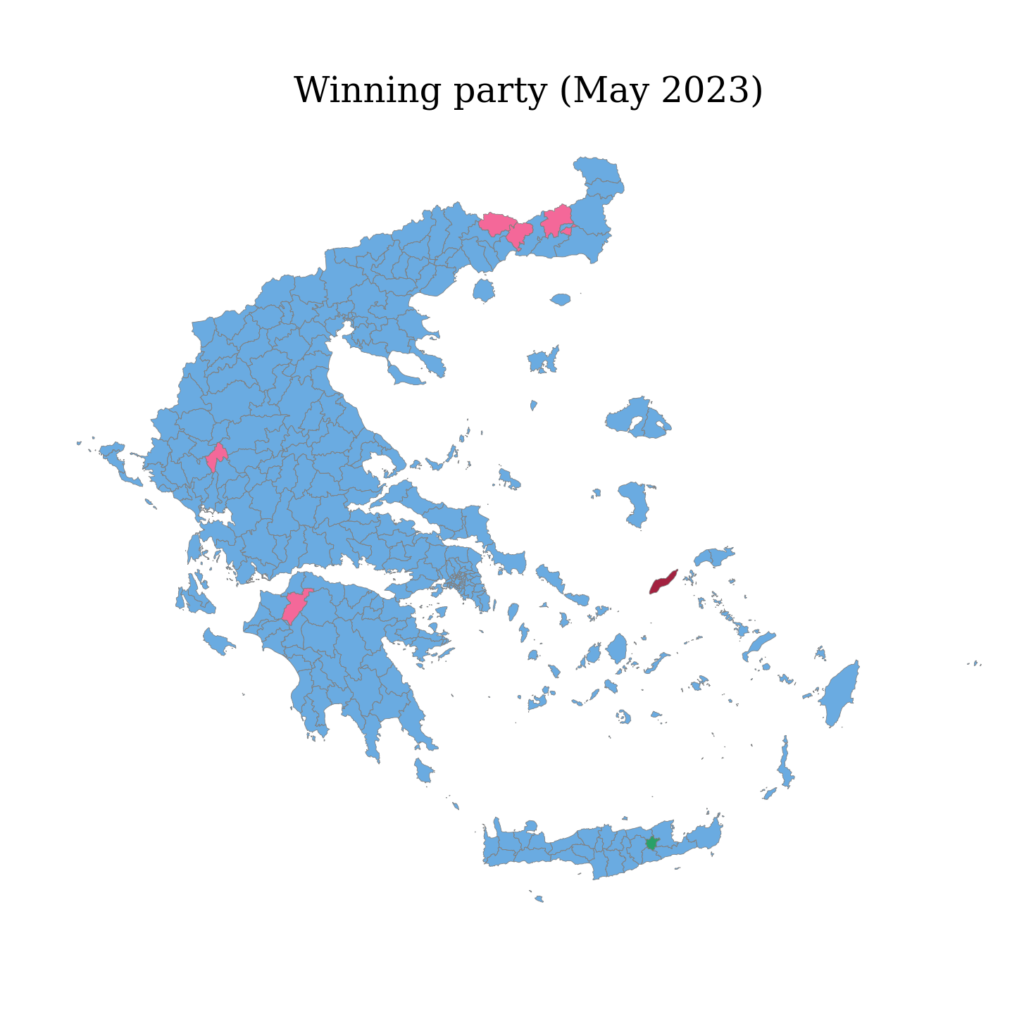
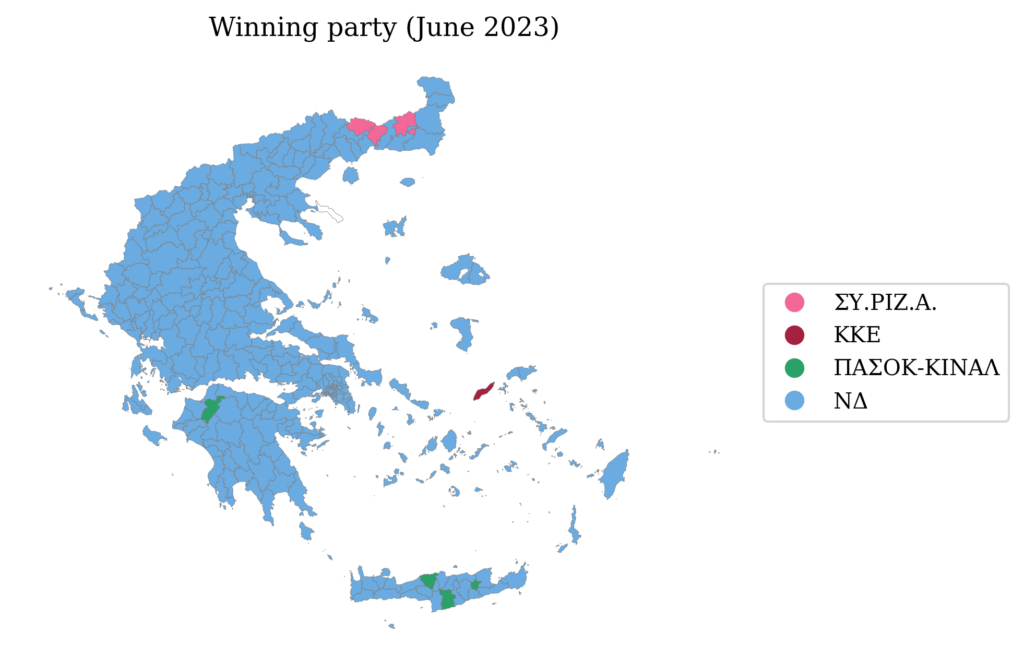
Outlook
After the 2019 elections, the Greek party-system that had been profoundly upset by the economic crisis was showing signs of re-stabilization and re-concentration (Kyriazi 2019; Rori 2020). The two elections of 2023 have reversed this trend. On the one hand, fragmentation returned to the system, as several smaller parties on both the left and right managed to enter parliament. On the other hand, there has been a further shift away from a bipolar system towards one-party dominance (Tsirbas 2024). New Democracy’s victory has been widely interpreted as a sign of a pervasive demand among the Greek electorate for economic and political security, stability, and normality (The Guardian 2023b). Widespread economic voting goes a long way in explaining its success, though, at the same time, we shall also note that the campaigns were fought in a biased media environment which largely favoured New Democracy (Tsirbas 2024).
The difference between New Democracy and SYRIZA was wider than that between SYRIZA and the third party, PASOK-KINAL. The results cast a shadow over SYRIZA’s ability to persist as the main left-wing pole of a traditionally two-party system. The drastic decrease of the party’s vote share prompted the resignation of Alexis Tsipras on June 29. He was succeeded by Stefanos Kasselakis, an entrepreneur and outsider to Greek politics (The Guardian 2023c). It remains to be seen whether and in what way SYRIZA can recover from the 2023 loss. Moreover, the party’s faint showing carries broader implications for Greek parliamentary politics as the incoming New Democracy government faces a fragmented and weak opposition.
Finally, a noteworthy development has been the resurgence of the Greek far right. This time, three such parties contested the elections, jointly gathering13% of the vote. This resurgence suggests that the turn towards exaggerated forms of nationalism and extremist politics has not been a phenomenon driven purely by the economic crisis (Rori and Georgiadou 2023, see also: Kyriazi 2016).
The data
May 2023
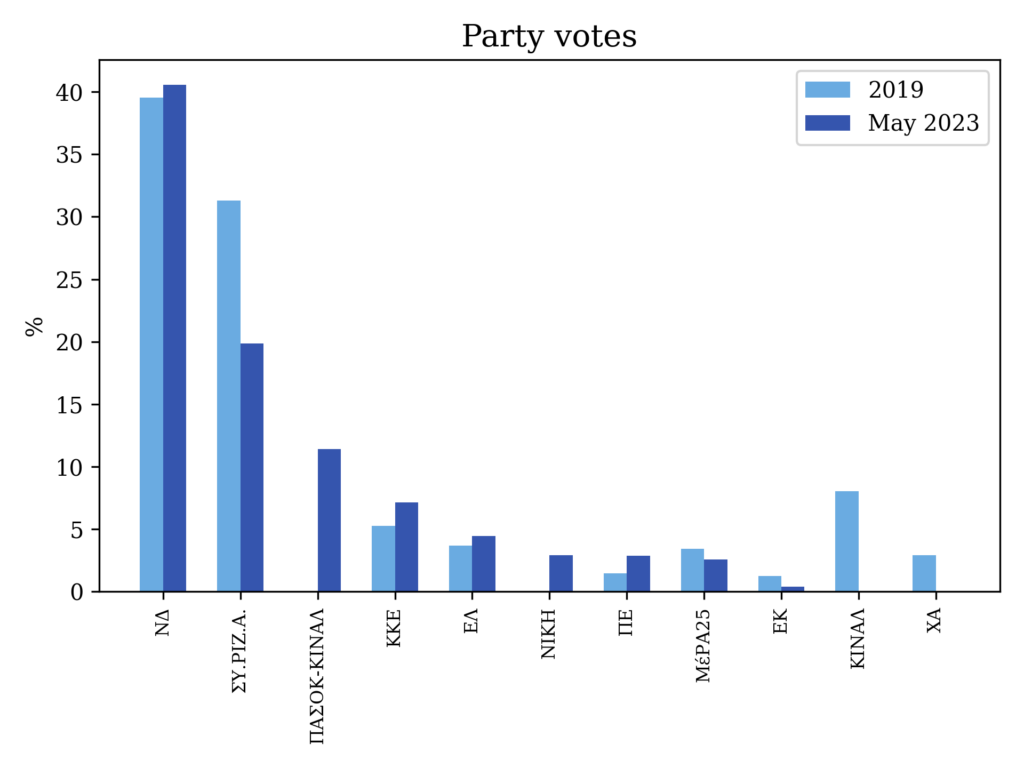
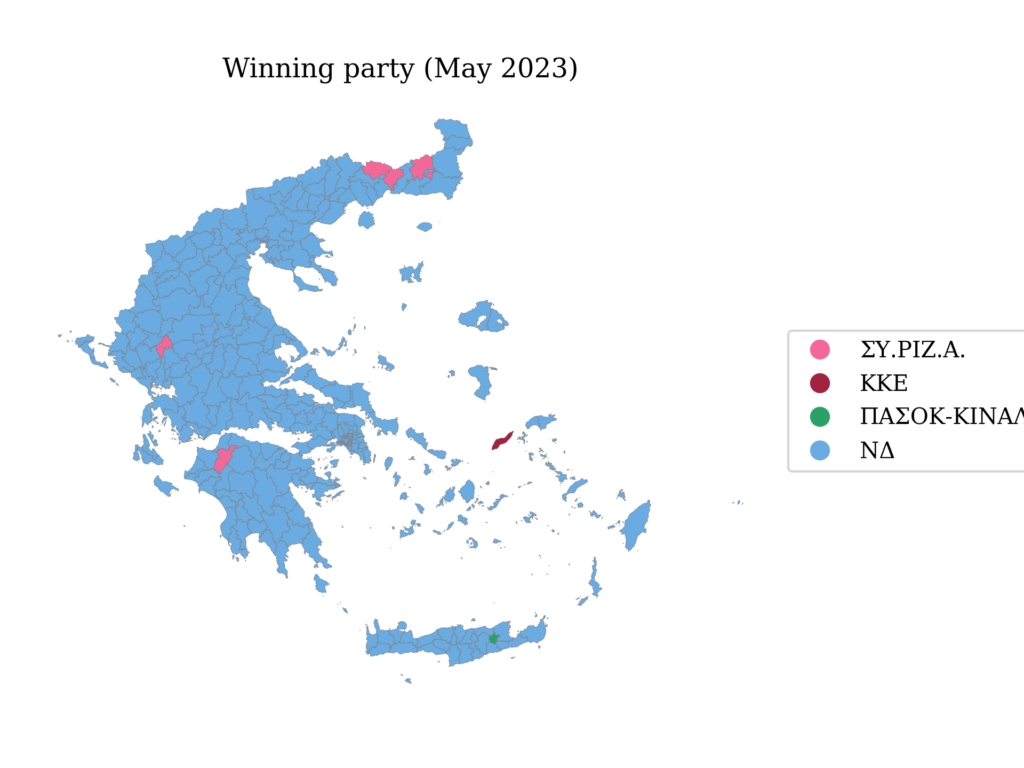
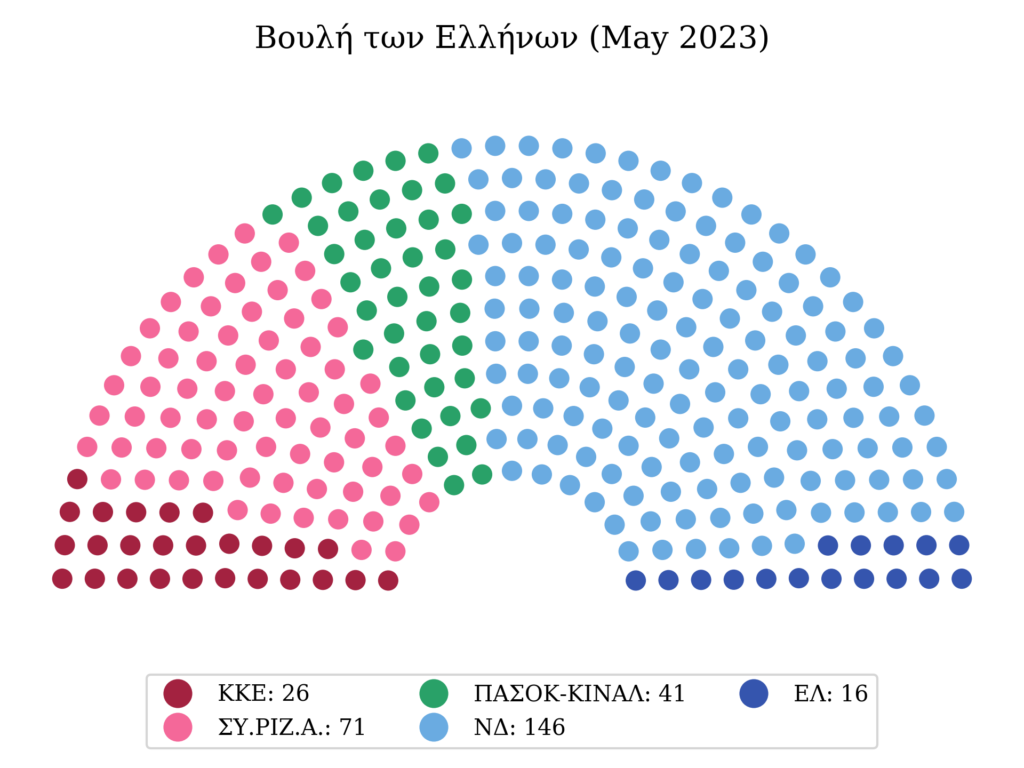
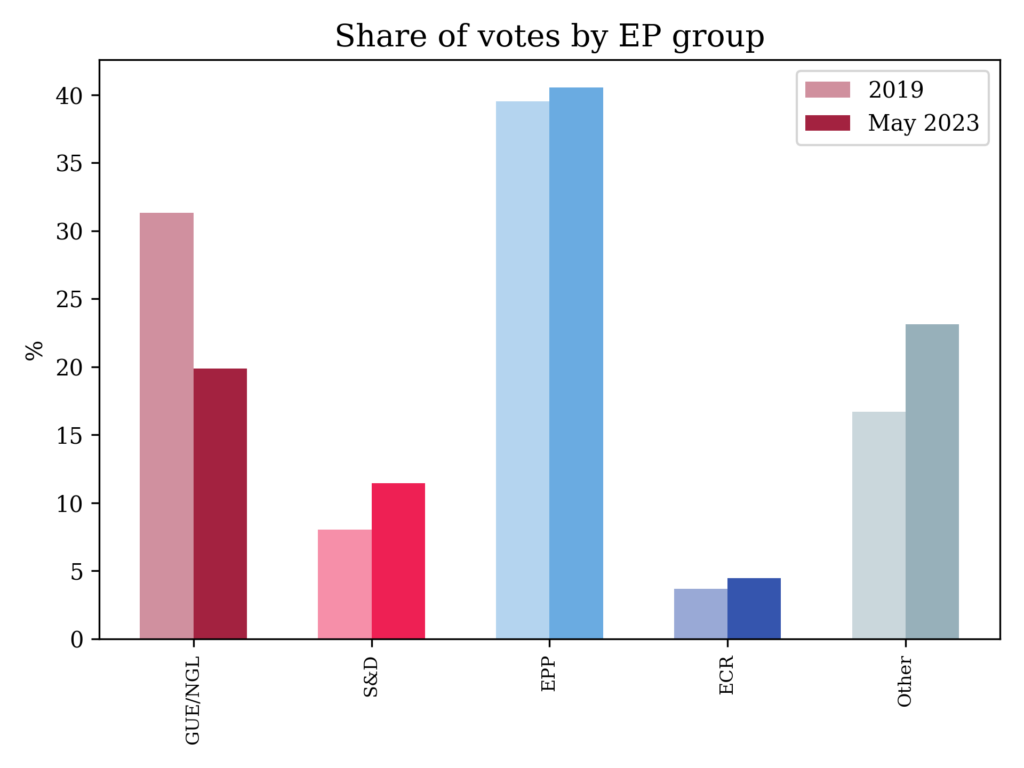
June 2023
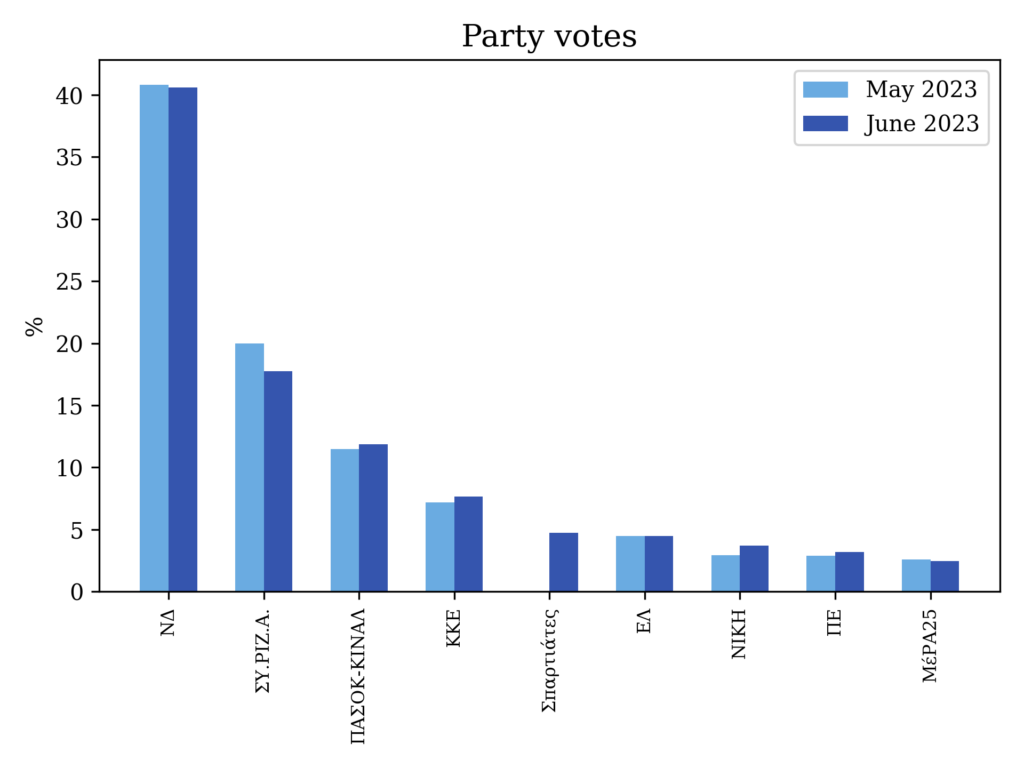
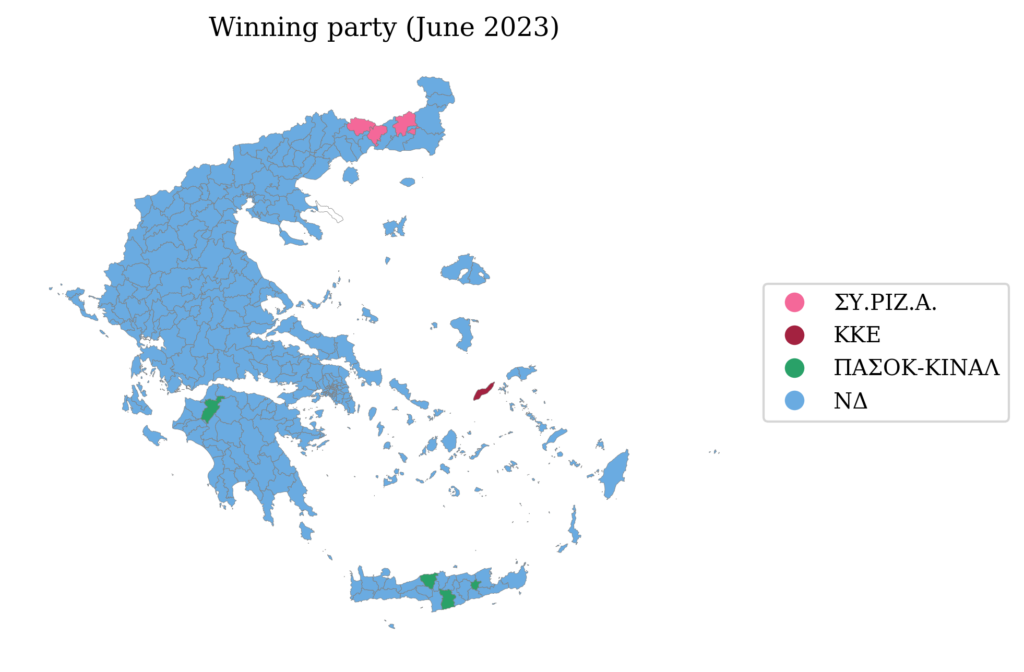
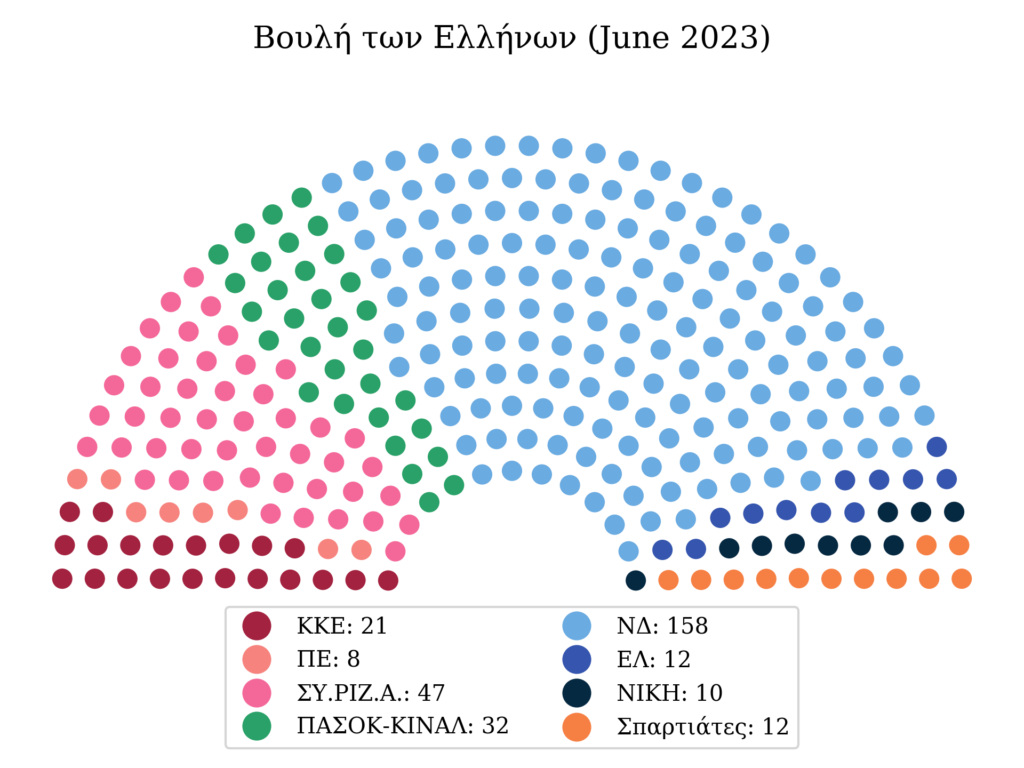
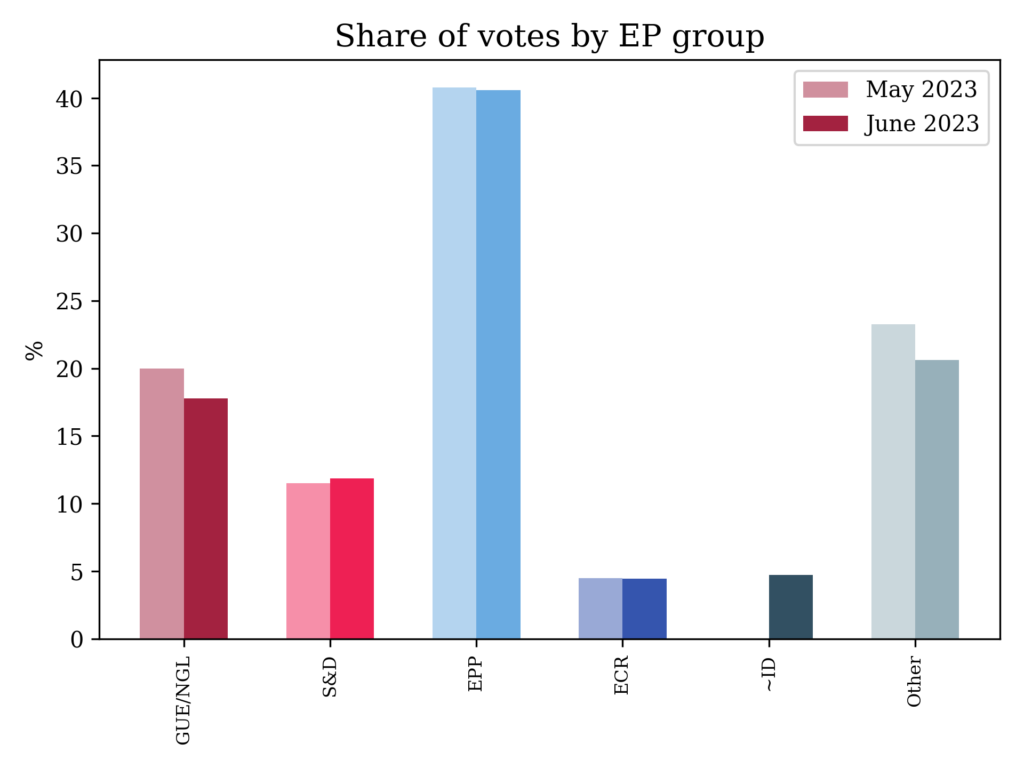
References
Altiparmakis, A. (2019). Greece-Punctuated Equilibrium: The Restructuring of Greek Politics. In Swen Hutter and Hanspeter Kriesi (eds) European Party Politics in Times of Crisis (pp. 95-117). Cambridge: Cambridge University Press.
Ellinas, A. A. (2013). The Rise of Golden Dawn: The New Face of the Far Right in Greece. South European Society and Politics, 18(4): 543–565.
Kathimerini (2023, 27 June). Election 2023: How they voted by age, profession, gender and ideological area.
Kordas, George (2023). What the 2023 elections told us about anti-establishment politics in Greece. LSE European Politics and Policy (EUROPP) blog.
Kyriazi, A. (2016). Ultranationalist discourses of exclusion: A comparison between the Hungarian Jobbik and the Greek Golden Dawn. Journal of ethnic and migration studies, 42(15): 2528-2547.
Kyriazi, Anna (2019). The General Elections in Greece 2019. MIDEM Report 2019-3, Dresden.
New Democracy (2023). Steadily, boldly, ahead. Online.
News24/7 (2023, 22 April). Mitsotakis: Elections with national issue [of extraordinary importance] achieving investment grade rating. Oline.
Moschonas, G. (2013). A new left in Greece: PASOK’s fall and SYRIZA’s rise. Dissent, 60(4): 33-37.
PASOK-KINAL. (2023). Priorities for a modern state with social justice. Online.
Politico (2023, 22 May). Mitsotakis calls for second Greek election, possibly on June 25. May 22, 2023.
Rori, L. (2020). The 2019 Greek parliamentary election: retour à la normale. West European Politics, 43(4): 1023-1037.
Rori, L. & Georgiadou, V. (2023). The June 25th elections and the complex mosaic of the Far Right. Heinrich Böll Stftung. Online.
Syriza (2023). We know, we can bring change. Online.
The Guardian (2023a, 18 June). We just want to know if he is alive or dead’: migrants desperate for news of relatives in Greece shipwreck disaster. Online.
The Guardian (2023b, 24 June). ‘An even bigger margin’: Mitsotakis set to win majority in Greek election. Online.
The Guardian (2023c, 25 September). Stefanos Kasselakis: ex-banker who lit up Greek politics to lead Syriza. 25 September 2023. Online.
Tsirbas, Y. (2024). Towards a predominant party system: the May 2023 election in Greece. South European Society and Politics, 1-24.
Notes
- Given space limits a systematic analysis of parties’ positions and campaign strategies is not possible. This section summarizes insights derived from the main parties’ programmatic and ideological documents along with various campaign materials.
- In May 2022, KINAL reinstated the old name of “PASOK” and became “PASOK-KINAL”.
citer l'article
Anna Kyriazi, Parliamentary elections in Greece, May-June 2023, Jun 2024,
à lire dans cette issue
voir toute la revue





